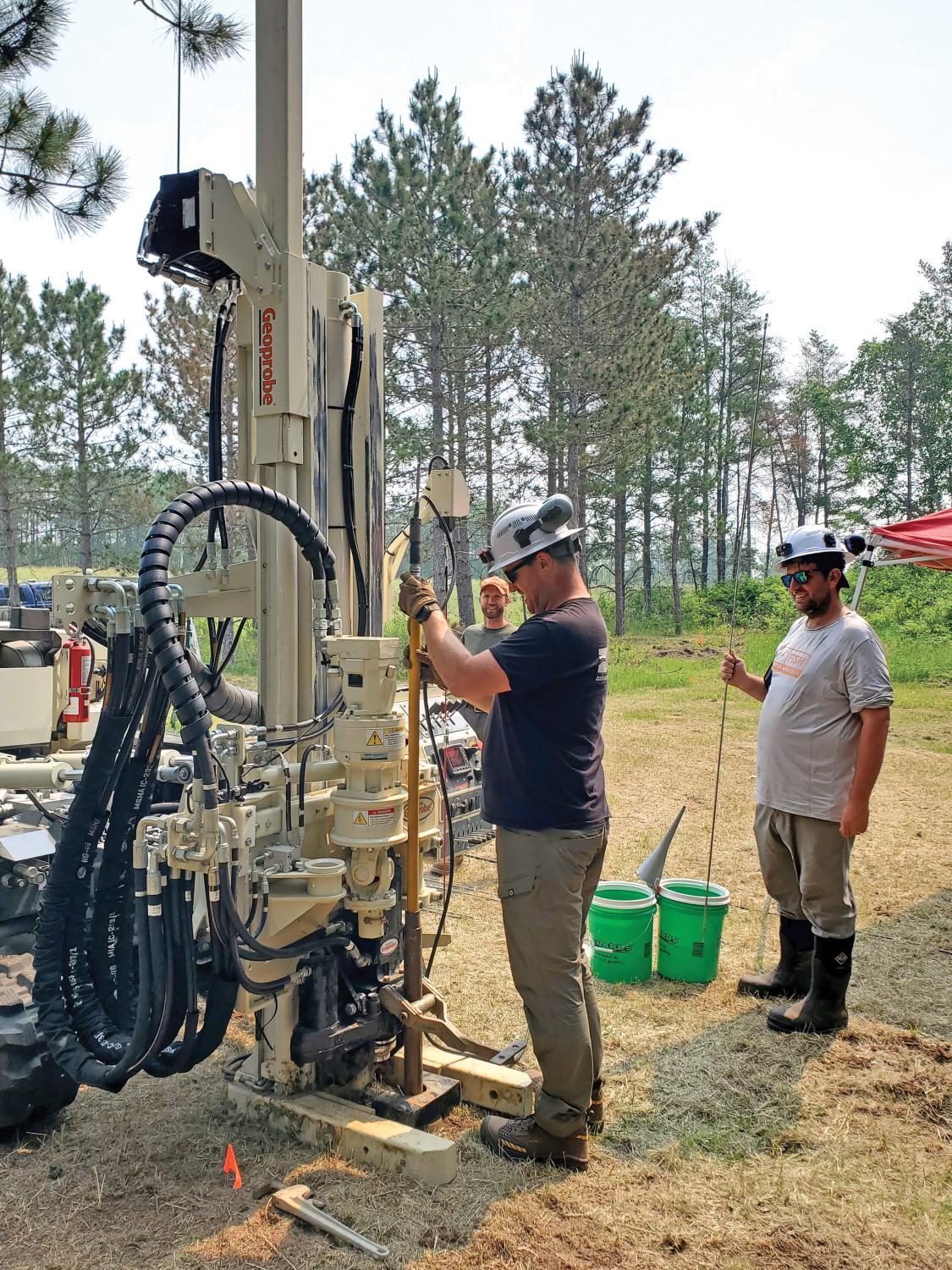
NMR works by using an induced magnetic field to affect and align the nucleus of the hydrogen atoms within water molecules, useful in hydrological investigation such as aquifer recharge studies.
Geoprobe® now offers the newest logging tool technology for rent. Nuclear Magnetic Resonance (NMR), a widely used borehole wireline logging technology in the petroleum industry for characterizing hydrocarbon reservoirs, has been adapted for hydrological investigation - such as aquifer recharge - within monitoring wells and open boreholes.
NMR works by using an induced magnetic field to affect and align the nucleus of the hydrogen atoms within water molecules. A high-voltage electrical current is pulsed through a coil of shielded wire at the specific resonant frequency of hydrogen nuclei. This ‘excites’ the nuclei, causing them to realign with the induced field. Next, the current is turned off. As the nuclei ‘relax’ to the original state, they generate an electromagnetic response signal that is measured on the same coil that was used to excite them.
Because recorded NMR signal is emitted directly by hydrogen nuclei in water, it directly measures the total amount of water within the measured zones and the relaxation rate of water molecules, the latter of which is sensitive to the size distribution of pore spaces. Smaller pore sizes result in short T2 relaxation times, larger pore sizes result in longer relaxation times. These measurements allow us to assess volumetric water content within the formation, as well as estimate the subfractions of mobile, capillary, and bound water. These values are useful for aquifer recharge and soil bearing capacity studies.
Geoprobe Systems® in conjunction with Vista Clara Inc., Washington, has developed the DP NMR Dart probe for 2.25-inch direct push applications. Application of the DP NMR has shown effective characterization of water in both large- and small-pore soils. If you'd like to try this new technology on an upcoming hydrological investigation project, give us a call.
NMR Data Valued for Aquifer Recharge, Soil Bearing Studies
NMR Characterizes Low-Permeability Zones
• Aquifer Recharge: Effective to estimate aquifer properties such as porosity and permeability governing flow and storage of groundwater, useful in managing aquifer recharge
• Soil Bearing: Provides saturated soil porosity data, which affects soil bearing capacity relevant for construction and mine tailings
• Uses 2.25 in probe rods as outer casing
• NMR logging occurs as rods retracted back to surface
• Measurements obtained at 5.5- and 6-inch diameter surrounding dart probe, well beyond the 2.25 driven casing disturb zone
Contact Us
1835 Wall Street
Salina, Kansas 67401
Phone: (785) 825-1842
Related Articles
Related Videos
Electric Actuator by Geoprobe®
ID: 14048
ID: 12726
ID: 5732
Geoprobe® 3.75-inch Tooling System
ID: 1907

